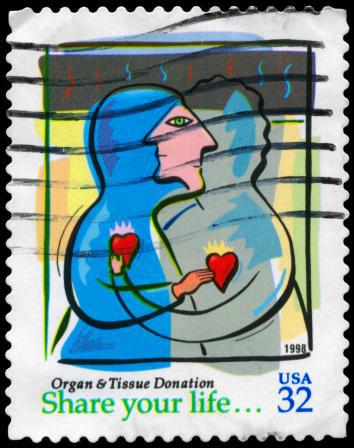It’s a sad fact of life that some of the greatest injustices sparked by anti-gay animus arise after death. The government seizes money that belongs to your widow. The state tries to keep your spouse off your death certificate. A pastor cancels your funeral because of your “blasphemous” lifestyle.
Here’s a new inequity to add to the list: The FDA rejects your organ donation—simply because you’re gay.
That’s what happened to A.J. Betts, a 16-year-old Iowan who committed suicide after a year and a half of ceaseless bullying on account of his orientation. Betts had always hoped to donate his organs after he died, and though some were successfully transplanted, his eyes were turned away and tossed out. Why? According to the Food and Drug Administration, a male donor who has had sex with men in the last five years “should … be ineligible” to donate some tissues, including eyes. (This policy is especially perplexing given that donors are screened for HIV before any organs are harvested, and Betts was permitted to donate other organs, including his heart.) Because Moore’s mother couldn’t prove whether Betts had had sex, his eyes were discarded.
The FDA’s anti-gay organ policies spring from the same insanely homophobic casuistry behind their anti-gay blood ban: an outdated, utterly irrational belief that all gay men are HIV-ridden disease vectors. Never mind that modern HIV tests can detect the virus from the moment of infectiousness, or that men who have sex with HIV-positive women and sex workers are only deferred for a year—or that a categorical ban on gays is just plain bad science. Other countries may lift their own gay blood bans, and medical experts may urge the FDA to revise its policies. But here in America, gay men’s bodies are still seen as blighted, dangerous, and infected.
Presumably, the medical community’s passionate opposition to the FDA’s discriminatory policies will lead the agency to revisit them soon. Until then, however, people like Betts, who suffered so much pain in life, will have to suffer one more injustice in death. Betts killed himself because he couldn’t live with the cruelty he faced due to his sexuality. Now his mother has been forced to carry that burden. It’s a tragic situation, a completely unnecessary mess—and a depressing snapshot of gay life in a country still fettered to fears of the past.
